Virginia Woolf Quotes
Most popular Virginia Woolf Quotes

Even her eyelashes acted.

Intimacy is a difficult art.

Language is wine upon his lips.

Arrange whatever pieces come your way.

You cannot find peace by avoiding life.

Literature is the record of our discontent.

That great Cathedral space which was childhood.
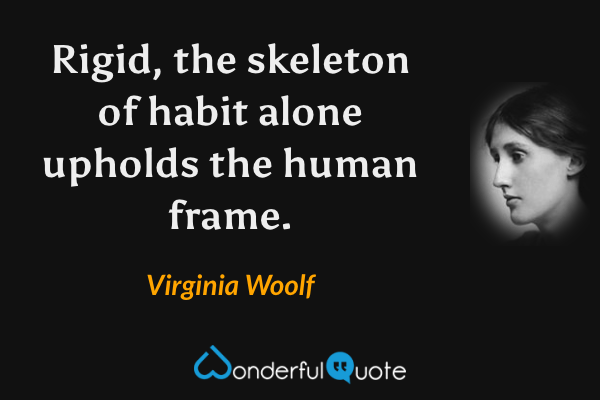
Rigid, the skeleton of habit alone upholds the human frame.

Some people go to priests; others to poetry; I to my friends.

I ransack public libraries & find them full of sunk treasure.
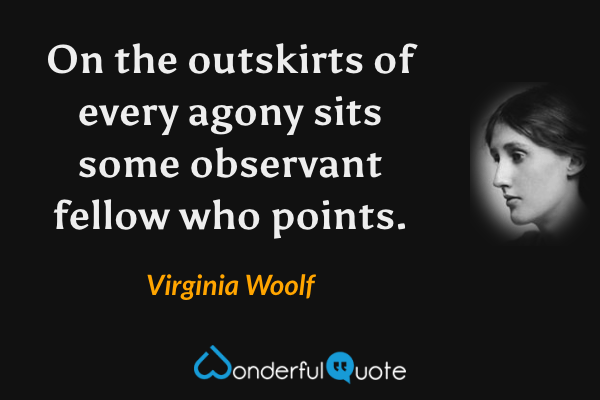
On the outskirts of every agony sits some observant fellow who points.

It is the privilege of loneliness; in privacy one may do as one chooses.

Her mind is a very thin soil, laid an inch or two above very barren rock.
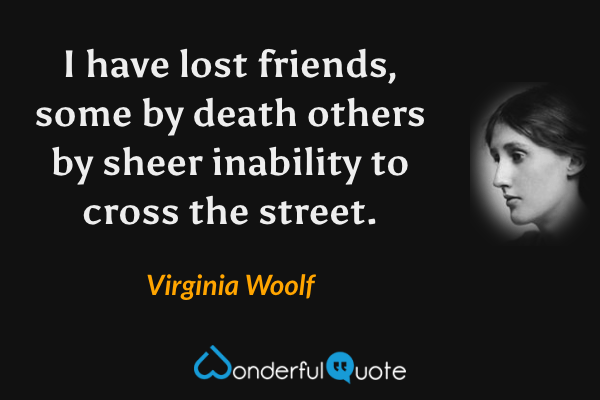
I have lost friends, some by death others by sheer inability to cross the street.

If you do not tell the truth about yourself you cannot tell it about other people.
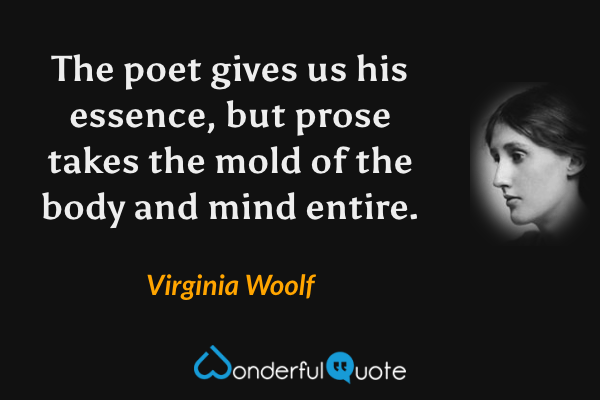
The poet gives us his essence, but prose takes the mold of the body and mind entire.

Wherever one cut him, with a little question, he poured, spurted fountains of ideas.

I like going from one lighted room to another, such is my brain to me; lighted rooms.

Unless you catch ideas on the wing and nail them down, you will soon cease to have any.
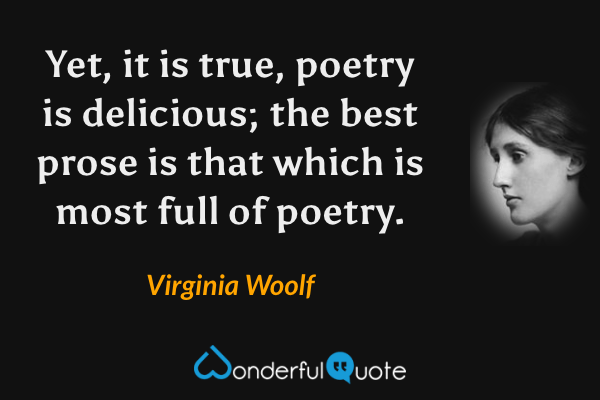
Yet, it is true, poetry is delicious; the best prose is that which is most full of poetry.
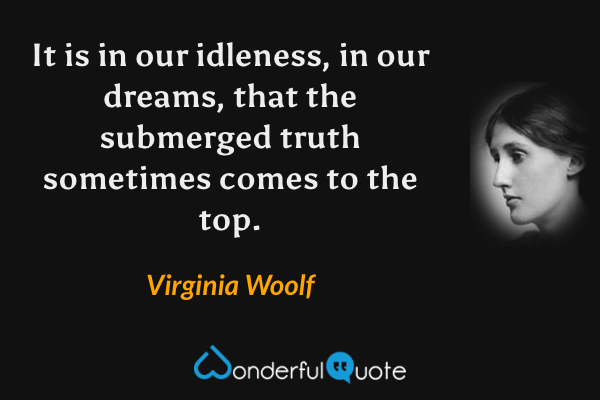
It is in our idleness, in our dreams, that the submerged truth sometimes comes to the top.
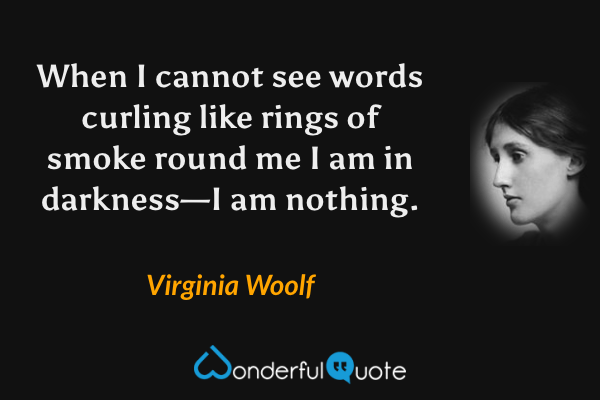
When I cannot see words curling like rings of smoke round me I am in darkness—I am nothing.

Death is the enemy. Against you I will fling myself, unvanquished and unyielding, O Death!

The beauty of the world has two edges, one of laughter, one of anguish, cutting the heart asunder.

I don't believe in aging. I believe in forever altering one's aspect to the sun. Hence my optimism.
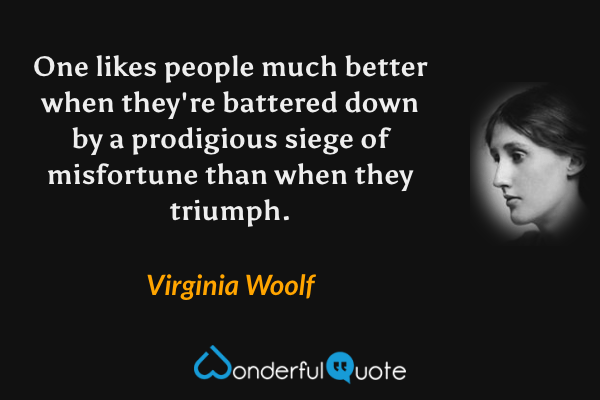
One likes people much better when they're battered down by a prodigious siege of misfortune than when they triumph.

One has to secrete a jelly in which to slip quotations down people's throats—and one always secretes too much jelly.

Every secret of a writer's soul, every experience of his life, every quality of his mind is written large in his works.

Each had his past shut in him like the leaves of a book known to him by heart; and his friends could only read the title.
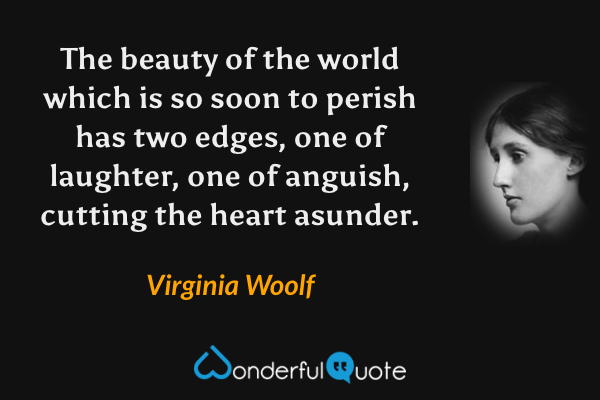
The beauty of the world which is so soon to perish has two edges, one of laughter, one of anguish, cutting the heart asunder.

A biography is considered complete if it merely accounts for six or seven selves, whereas a person may well have as many thousand.

Novels so often provide an anodyne and not an antidote, glide one into torpid slumbers instead of rousing one with a burning brand.

A masterpiece is...something said once and for all, stated, finished, so that it's there complete in the mind, if only at the back.

Where the Mind is biggest, the Heart, the Senses, Magnanimity, Charity, Tolerance, Kindliness, and the rest of them scarcely have room to breathe.
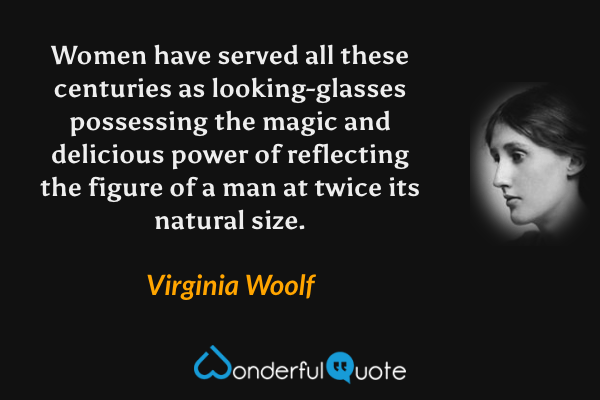
Women have served all these centuries as looking-glasses possessing the magic and delicious power of reflecting the figure of a man at twice its natural size.

Fiction is like a spider's web, attached ever so lightly perhaps, but still attached to life at all four corners. Often the attachment is scarcely perceptible.
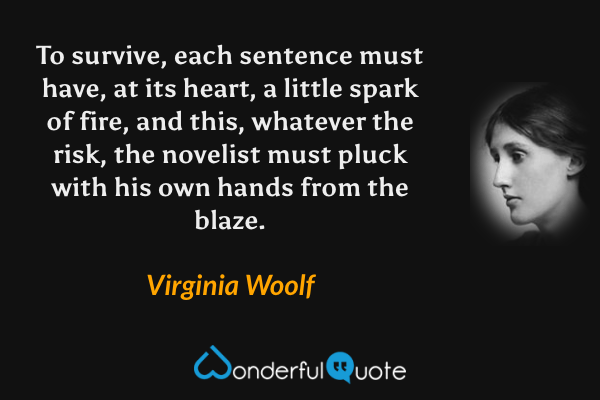
To survive, each sentence must have, at its heart, a little spark of fire, and this, whatever the risk, the novelist must pluck with his own hands from the blaze.

Travel and idle, contemplate the future or the past of the world, dream over books and loiter at street corners, and let the line of thought dip deep into the stream.
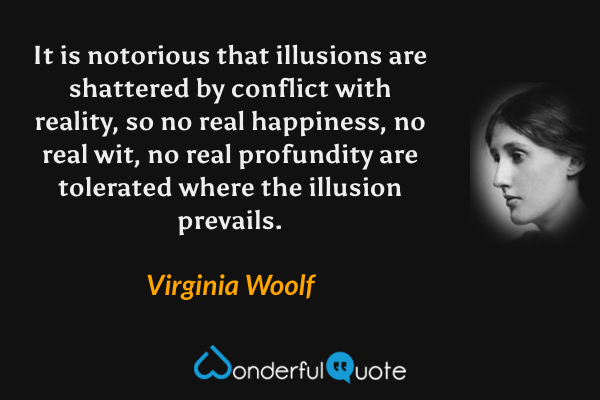
It is notorious that illusions are shattered by conflict with reality, so no real happiness, no real wit, no real profundity are tolerated where the illusion prevails.

There can be no two opinions as to what a highbrow is. He is the man or woman of thoroughbred intelligence who rides his mind at a gallop across country in pursuit of an idea.

Vague as all good definitions are, a good essay must have this permanent quality about it; it must draw its curtain round us, but it must be a curtain that shuts us in, not out.
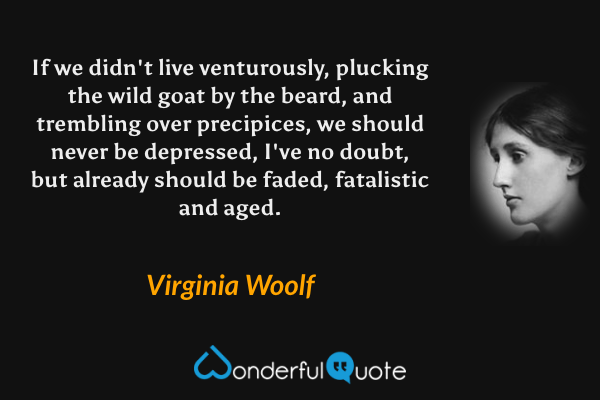
If we didn't live venturously, plucking the wild goat by the beard, and trembling over precipices, we should never be depressed, I've no doubt, but already should be faded, fatalistic and aged.
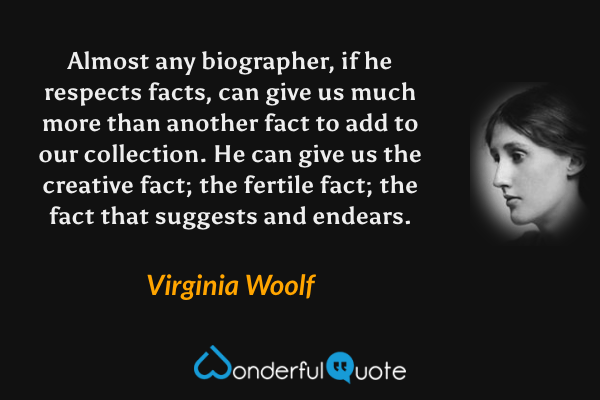
Almost any biographer, if he respects facts, can give us much more than another fact to add to our collection. He can give us the creative fact; the fertile fact; the fact that suggests and endears.
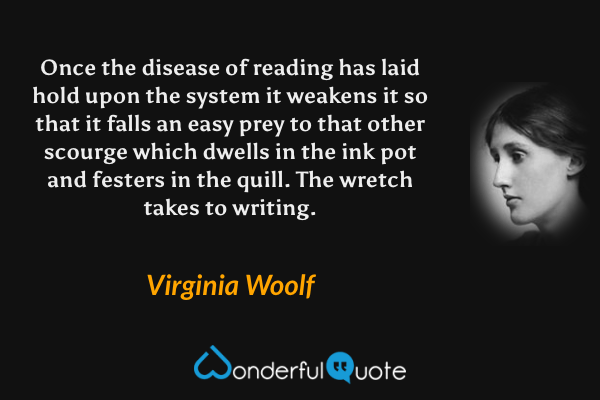
Once the disease of reading has laid hold upon the system it weakens it so that it falls an easy prey to that other scourge which dwells in the ink pot and festers in the quill. The wretch takes to writing.
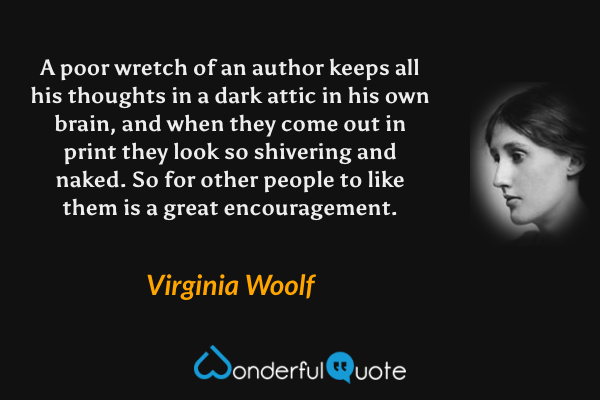
A poor wretch of an author keeps all his thoughts in a dark attic in his own brain, and when they come out in print they look so shivering and naked. So for other people to like them is a great encouragement.
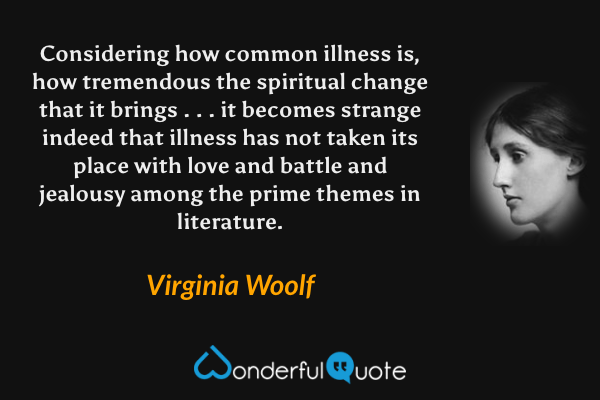
Considering how common illness is, how tremendous the spiritual change that it brings . . . it becomes strange indeed that illness has not taken its place with love and battle and jealousy among the prime themes in literature.

Books are everywhere; and always the same sense of adventure fills us. Second-hand books are wild books, homeless books; they have come together in vast flocks of variegated feather, and have a charm which the domesticated volumes of the library lack.
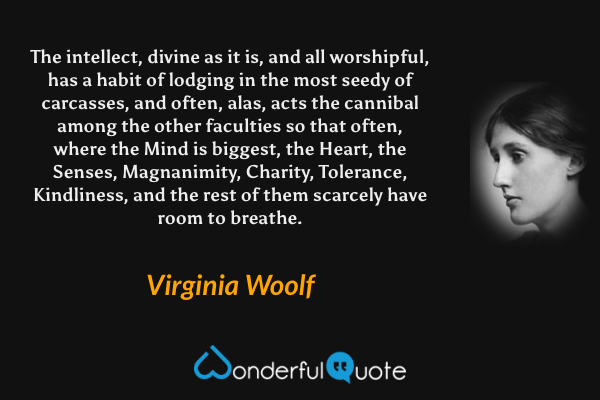
The intellect, divine as it is, and all worshipful, has a habit of lodging in the most seedy of carcasses, and often, alas, acts the cannibal among the other faculties so that often, where the Mind is biggest, the Heart, the Senses, Magnanimity, Charity, Tolerance, Kindliness, and the rest of them scarcely have room to breathe.
There can be no two opinions as to what a highbrow is. He is the man or woman of thoroughbred intelligence who rides his mind at a gallop across country in pursuit of an idea.


